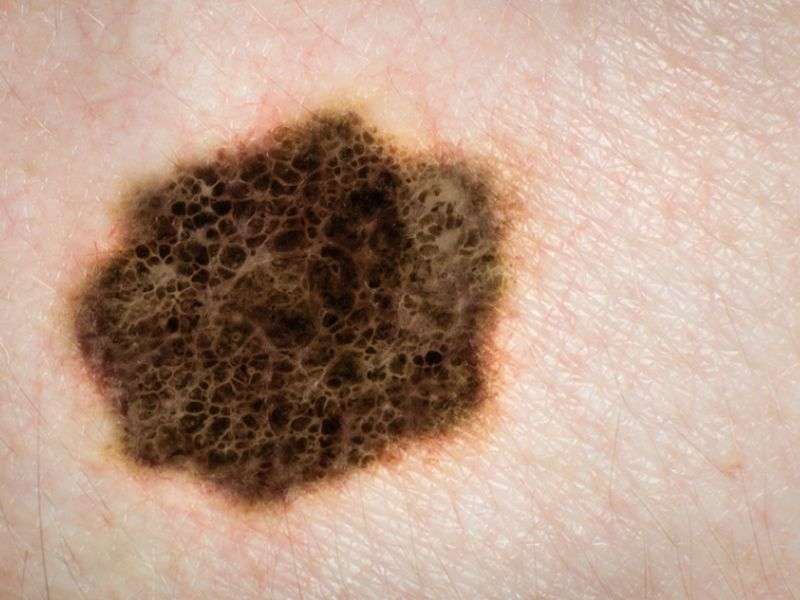Surgery may be best for advanced melanoma

(HealthDay)—Surgery to remove melanoma—the deadliest form of skin cancer—can extend the lives of patients whose disease has spread to the abdomen area, new research suggests.
Patients who get drug therapy and surgery to remove their cancer live twice as long—18 months on average—as those who only get medication, researchers found.
"Now that there are better options systemically, the decision-making about treatment has become more complex. Having this data available could potentially impact discussions about treatment and benefit patients long-term," said study leader Dr. Gary Deutsch, a cancer surgeon at Northwell Health in Great Neck, N.Y.
"I think the combination of immunotherapy with surgical therapy ... could potentially lead to curing more patients," he said in a health system news release.
Immunotherapy prompts a patient's immune system to destroy cancer cells. The U.S. Food and Drug Administration has approved it to treat melanoma, providing an alternative to standard chemotherapy for cancers that spread to other parts of the body. The researchers behind the new study said surgery to remove melanoma that has spread within the belly is rare.
For the study, Deutsch and his team analyzed the medical records of more than 1,600 patients treated for melanoma that had spread to the abdominal area. Of those, nearly 400 had surgery to remove their cancer.
Melanoma had spread to the liver in 697 patients, to the gastrointestinal tract in 336 patients and to the adrenal glands in 138 patients. It spread to the spleen in 109 patients and to the pancreas in 38. Another 305 patients' cancer spread to several organs.
For patients who had surgery to remove their melanoma, the average survival time was 18 months, nearly 2.5 times longer than those who didn't have surgery.
The study was published April 5 in the journal JAMA Surgery.
Deutsch said he believes integrating surgery with newer drug treatments will greatly benefit patients.
Deutsch did the research as a surgical oncology fellow at the John Wayne Cancer Institute at Providence Saint John's Health Center in Santa Monica, Calif.
More information: The American Cancer Society provides more information on melanoma.
Copyright © 2017 HealthDay. All rights reserved.
















